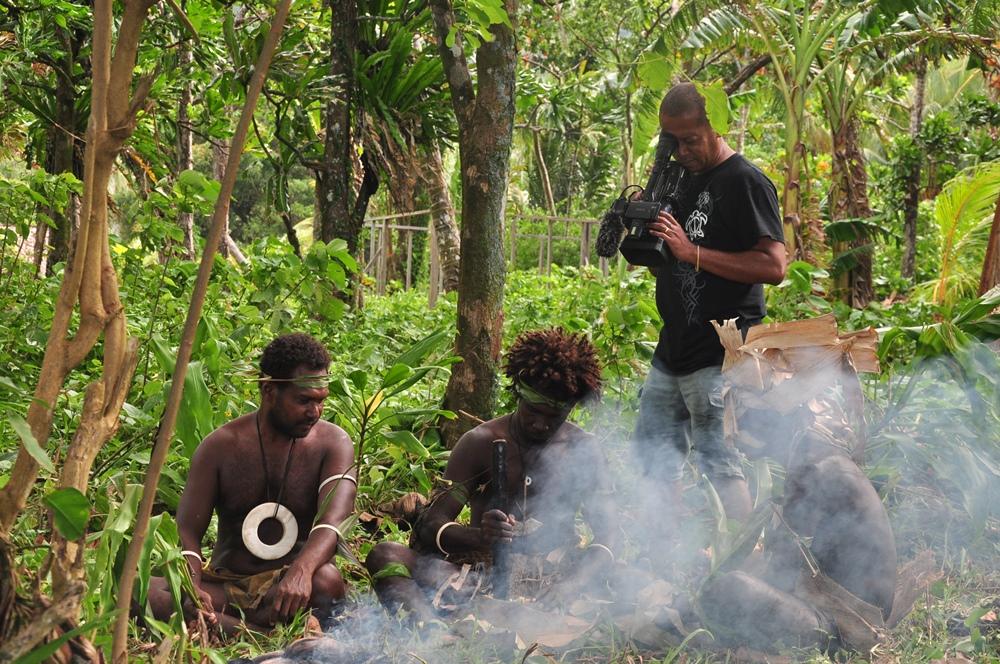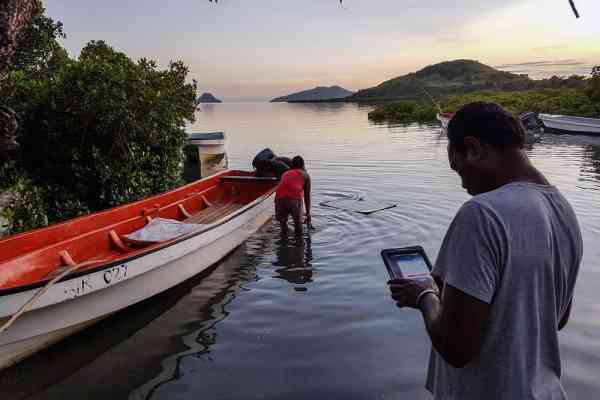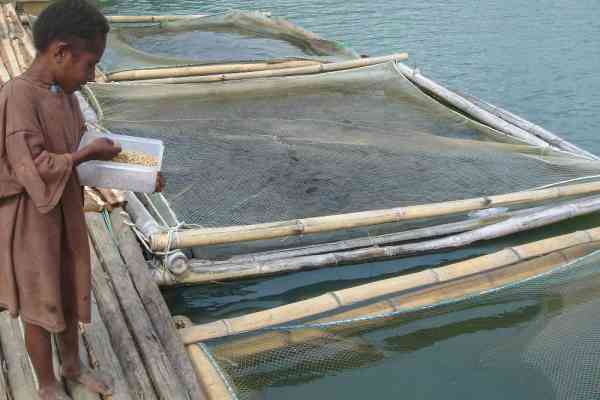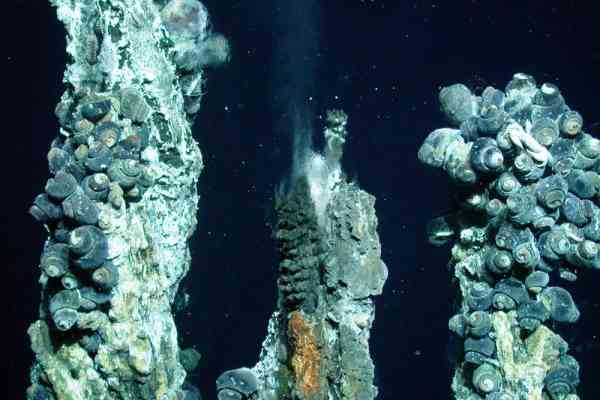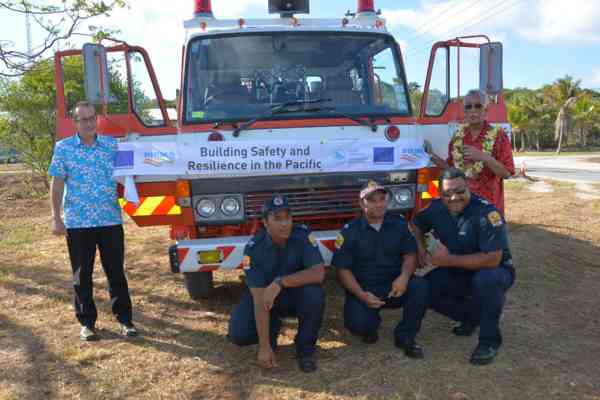How does a tasty nut from a remote forest in Solomon Islands get harvested, baked, certified as organic produce and end up for sale in health food shops thousands of kilometres away in New Caledonia?
Ngali nut farmers Mzipa Ghumi and Dorence Walter followed the supply route from their village, Baniata, in Solomon Islands’ Western Province to the middle-buyers outlet in Honiara, through Fiji and eventually to New Caledonia, to see what happens to their nuts along the way.
“Our community is difficult to get to and it’s even harder for us to get to markets because of the long journey and the boat fare, and yet our nut sales are not always secure,” said Dorence Walter.
Ngali is the fruit of the lofty Canarium Indicum tree from Solomon Islands and Papua New Guinea. From August to February, Mzipa and Dorence collect ngali from the leafy forest floor just as their ancestors did. Mature trees can provide 30 kilos of nuts, with some families owning 20 to 40 trees.
Preparing the nuts is labour-intensive, involving picking, shelling using stone hammers and then wrapping the kernel in leaves and baking it on hot stones. It can take a month to fill several buckets for export.
As part of the process of reaching out to different markets, the village farmers have been working to make their local delicacy the first wild harvest to receive organic growers accreditation from the Pacific Organic and Ethical Trade Community (POETcom). SPC houses the secretariat for PoetCom in our Land Resources Division at our Suva campus.
“Our forests are clean and pure, and we want to give it to our descendants as it is now,” said Baniata Organic Committee chair, Walter Silvae. “It’s our duty. We respect nature and it provides for us.”
In Honiara, the ngali nuts are bought by Sol Agro, a local company that supports organic product development in rural communities. It exports the nuts to Biomonde Noumea, a health food retailer in New Caledonia.
For Mzipa and Dorence, making the long journey to see their nuts for sale in another country meant they could explain the importance of good markets for providing for their children. “Now that you buy our nuts, we know we can have more money to add to the money we earn from copra,” Mzipa Ghumi told shop-owners.
Owner of retail shop Biomonde Robinson, Fabienne Gandet, said air freight costs were a major barrier to importing more nuts, as there were no reliable shipping services between the Solomons and New Caledonia.
“We really don’t want to buy from outside the Pacific if we can avoid it, but we are forced to do so because it’s just more expensive to source products from Pacific Island countries because of expensive freight costs and the lack of an affordable enabling infrastructure,” Fabienne said.
The ngali nut project was supported by the European Union’s Increasing Agriculture Commodities and Trade Project, implemented by SPC, and by the International Fund for Agricultural Development.
Highlights
Growers from Baniata village in the Solomon Islands are the first to have their baked ngali nuts certified organic by the Pacific Organic and Ethical Trade Community (POETcom)
Ngali nuts from the Solomon Islands are finding new markets in New Caledonia
The nuts are harvested and baked traditionally before travelling by sea to Honiara wholesalers, then by air to health food shops in New Caledonia
